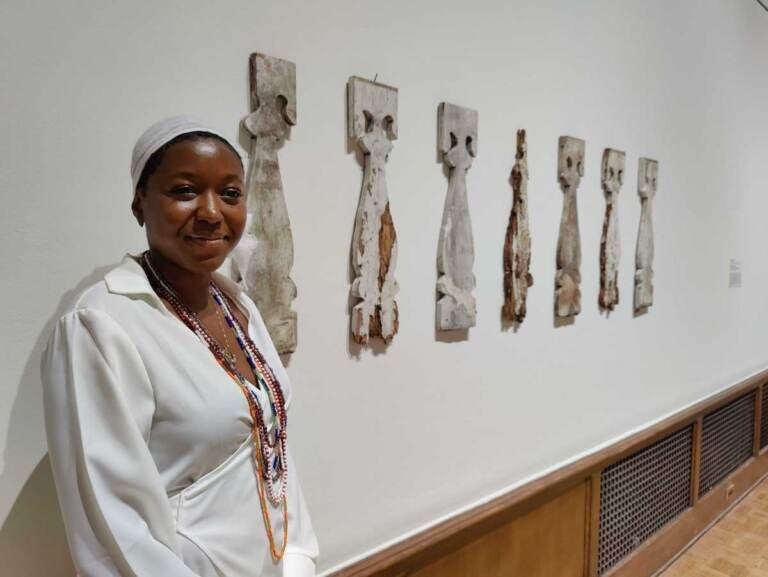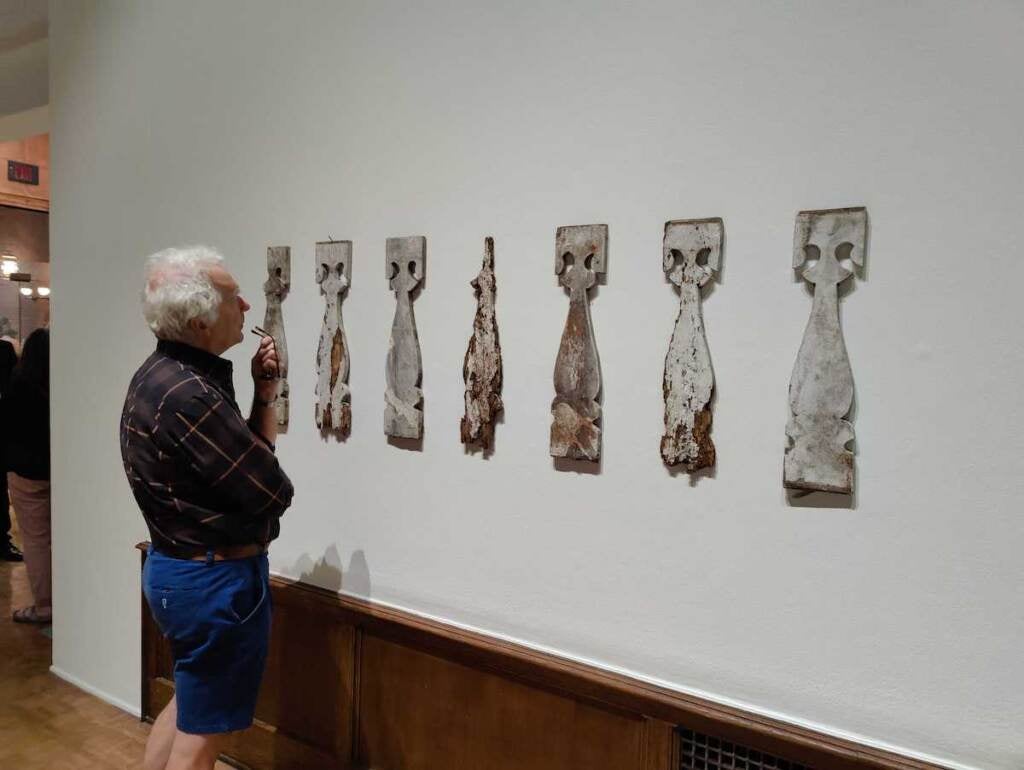In The News
Philly artist wins $100K craft prize for her work remembering Black ancestors
June 23, 2023
Adebunmi Gbadebo makes work from materials sourced directly from her enslaved ancestors.

The Philadelphia-based artist Adebunmi Gbadebo has won a major craft prize from the Maxwell/Hanrahan Foundation in the San Francisco Bay area, to the tune of $100,000. “It’s a blessing just getting the award,” said Gbadebo, 31. “But especially, as an artist, awards like this create more stability. I really equate stability to longevity in an artist’s career.”
Gbadebo’s work is currently on view at the Arthur Ross Gallery at the University of Pennsylvania, as part of the group exhibition “Songs for Ritual and Remembrance.”

She also has work in a major traveling exhibition, “Hear Me Now: The Black Potters of Old Edgefield, South Carolina,” in which her pieces accompany stoneware made by enslaved Black artisans of the early 19th century. “Hear Me Now” opened at the Metropolitan Museum of Art in New York, and is now at the Museum of Fine Arts, Boston. Later this summer it will go to the University of Michigan Museum of Art in Ann Arbor.
“Adebunmi Gbadebo’s use of culturally and historically imbued materials such as indigo dye, soil hand-dug from plantations and human Black hair is a powerful investigation of the complexities between land, matter and memory on various sites of slavery,” the foundation said in a statement.
Unlike many craft artists, Gbadebo does not specialize in a particular medium. She moves between ceramics, paper making, fiber, and wood. The power of her art is in how the materials are sourced: Most can be traced directly to her ancestors.
The exhibition “Songs for Ritual and Remembrance” features a ceramic vessel made from the soil of the South Carolina plantation cemetery where her enslaved ancestors are buried. It is spiked with grains of Carolina Gold rice, the crop her ancestors would have tended.
There is a set of rotted wooden balcony balustrades that were carved by her enslaved ancestors as they built the McCord House in Columbia, now a registered historic landmark. Gbadebo salvaged them during a renovation.

A tapestry made from pulp and dyed indigo, a color derived from the cash crop at the True Blue Plantation where her ancestors were enslaved, is woven with strands of Black hair.
“What I will say is, my use of Black hair has been a constant,” Gbadebo said. “It is our body. It starts not from an art store, but from these intimate moments: A woman in her bathroom cutting her hair, or a barber giving a kid his first haircut. These private and public Black spaces.”
https://whyy.org/articles/philadelphia-artist-adebunmi-gbadebo-maxwell-hanrahan-foundation-craft-prize/